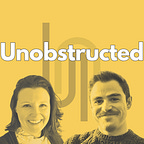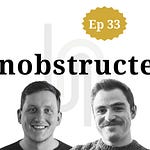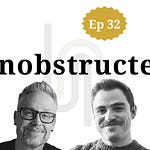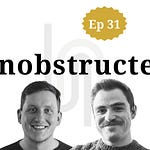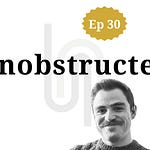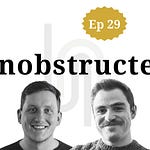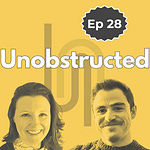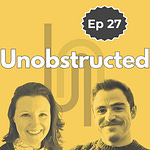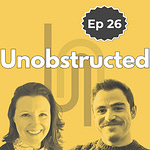“When’s the last time you cried out of happiness?”
My gut reaction was shame. An internal war erupted between telling the truth and trying to deflect the question. I’d wanted to hide. It was because I was embarrassed to admit I didn’t know the last time I’d cried at all—not just out of happiness.
It’d been a very long time since I’d lied to cover my shame around something like that, and I’d been determined not to fall into old traps. So I fought the discomfort and answered honestly when Rachael asked during a recent conversation.
“I don’t know” I’d finally said.
That mental battle felt like minutes but it’d only been milliseconds. After a deep breath I continued, “I’m not really a crier. But I wish I was… I hope I can be.”
My logic-brain and my nervous system are on different recovery pages… at least, when it comes to visibly displaying my emotions.
I stay pretty stone-faced in emotionally vulnerable moments. It’s an automatic response. And then I have to remind myself, “you don't have to do that.” But by that point, there’s already sizable distance from the emotional trigger-point.
I struggle with allowing myself to be vulnerable like that—visibly displaying my emotions. Which is interesting, because I’m able to show up vulnerably in other ways.
And a lot of hard work has gone into being able to do that.
The Unobstructed Podcast: Episode 25
In this episode of The Unobstructed Podcast, Rachael and I dive deep into emotional vulnerability, the societal expectations of masculinity, and how suppressing ourselves can impact our personal and professional lives. Throughout the conversation, we explore the challenges of expressing emotions, particularly for men, and the social norms that restrict vulnerability.
I have such beef with what the whole “alpha male” charade does to developing brains. It’s harmful, not helpful. Encouraging people to act like that is total bullshit. Especially since men largely do this to impress women. But, the kicker is that men and women seem to be defining alpha-maleness differently.
We assume it’s biological but it’s not—behavior doesn’t have a gender.
Rachael said that, while she can’t speak for every woman, she had some thoughts about where the attraction to alpha-men comes from.
“Women, who are interested in men, want a man that does manly things… it’s attractive because a guy like that can take care of stuff.”
But then she added, “we want him to still be a human with feelings, too, though. It actually shows me that he has a heart, has compassion, and that he cares deeply—that he’s gonna care deeply about me and care about my emotions and how I feel.”
What I heard Rachael say is that capability is what’s attractive—the ability to do something that needs to be done. And capability can be learned.
So can emotional intelligence.
If you suppress who you really are, you’re depriving the people around you of experiencing connection.
Alpha-maleness can be counterbalanced with things like critical thinking, growth mindset, accountability, and self-efficacy—the practice of learning new skills and improving upon yourself. Curiosity is the cure to overconfidence. It is the precursor to empathy, where you want to know more about how other people approach and experience things.
Alpha-maleness is built on the idea of providing and protecting. But, instead of providing, it requires withholding. Then you end up creating a model where people feel like they can’t show up fully with you.
Look I get it. I know that it’s a survival skill—and I’m sure people will disagree with me—but when people talk alpha-maleness, they’re usually leaning on a lens of biological, or evolutionary, survival abilities. Things like “men were hunters and women were gatherers” or “men are strong and women are weak.” It’s the same thought process behind “boys will be boys.”
That’s bullshit.
Humor me for a second and picture this: you plant seeds in two different flower pots. If you put one of those flower pots in direct sunlight and you put the other in complete shade, the seeds are going to turn out differently; even though they’re the same type of seeds.
Where a flower will grow in one of the pots, it might not in the other. And if it does, it might be stunted growth. The same is true for the behaviors and characteristics we assume come from gender. And I’m not talking about physical strength… I’m talking about cognitive ability, like emotional intelligence and relational dynamics.
Which, again, can be learned if given some sunlight and water.
The moments that led to withholding my emotions are moments where I’ve felt most insecure.
Which is awful because that guarantees it will happen again. What happens in situations like that is we shut off vulnerability in the name of alpha-male doctrine.
“Boys don’t cry” is the problem.
The solution to loneliness is connectedness. It’s not “don’t be so sensitive.” Which means you need to be vulnerable in order to feel less lonely. And that requires communicating and expressing your feelings.
But hey, I’m not going to tell you how to lead your life or what’s right for you or for your family. I will, however, offer that if you lean on alpha male stereotypes as an excuse to suppress your emotions, the people you’re supposedly providing for become doomed to repeat the lonely cycle you’ve modeled for them. They will repress their sadness, their loneliness, and their isolation. Just as they’ve been taught to.
I’m still not sure when I’ll cry out of happiness next, but I’m working on bringing my logic-brain and my nervous system closer together.
Rachael and I chat more in depth about this in the episode above. You can also listen on Spotify, Apple Podcasts, and Amazon Music.
onward.
P.S. If you’re new to my work, I think you’d also enjoy my blog. That’s where you’ll find everything I publish, including my daily email series.


